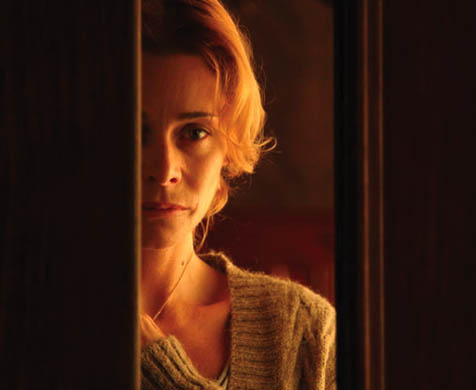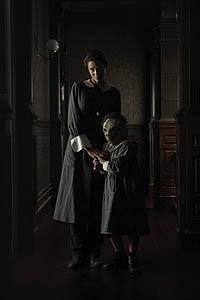Spain Unleashes The Orphanage on American Soil
The Ghosts in Your Head

Spain’s official film submission for the Academy Awards is a ghost story titled The Orphanage-and it’s one of the tensest experiences I’ve ever had at the movies. The thrills and chills are aplenty, but they’re not cheap. A woman loses her only son and has to confront ghosts to get him back. Or is it all just in her head? The movie was produced by Guillermo del Toro, the masterful director of Pan’s Labyrinth. I sat down with the writer Sergio G. S¡nchez and director J.A. Bayona to discuss their film.
What was the inspiration for the script?
Sergio G. S¡nchez: My mother locked me up in a basement once. (Laughs.) Just kidding. I loved watching horror movies when I was a kid and reading horror stories, and I loved the works of Poe and, of course, I read The Turn of the Screw when I was like 12 years old. I loved it, but I did not understand it. Every year I kept going back to it, and I kept thinking, “Oh, I missed something, I missed something,” until I finally realized that it was completely open to interpretation. And that is one word that really marked me as a kid, and that’s basically what I wanted to do with The Orphanage. I wanted to do a haunted house film that would also be read as the downfall of this poor woman who is losing her mind as she is unable to cope with the loss of her son. So, basically, I just started from that in my own fears.
Most American horror films rely a lot on gore and violence. This one doesn’t.
Juan Bayona: Well, we were trying to focus on simplicity, which isn’t a very common thing nowadays. There is a trend to be excessive. And I tried to go back to the movies that I saw as a child, the movies in the ’70s and even the ’60s which kept things simple-not too many characters, just a single location, a very simple story. And besides, I’m a firm believer that the things you don’t show have greater impact than gore.
Underneath the thrills and chills, there’s a deep psychological study of this woman. Was this hard to balance?
JB: There is a real tradition in Spain about ghosts. Lots of authors write stories about ghosts. But it is not like the English or American tradition. We really made unique ghost stories in the ’70s during the time of Franco. And all these filmmakers like Carlos Saura and V-ctor Erice, who made The Spirit of the Beehive-they were doing political films in the ’70s that were about memories or about ghosts. You know, we don’t need to use these digital effects to create a ghost. You can be suggestive, subtle. That’s the real unique trait I learned from those movies. When you talk about Spanish culture, there’s a unique way of creating a ghost, and I remember doing that in this film and thinking that everything should have psychological meaning. It’s like, for me, the reason that there are ghosts in that house is because Laura conjures them with her fears and psychological state.

It’s become a cliche that horror films happen at night. In your film, a lot of the scary scenes happen during daylight. Was that a deliberate choice?
JB: Yeah, we were trying to avoid all these cliches. We tried to focus on the drama of the character of Laura, so we didn’t pay too much attention [to] if it was day or at night.
The seance scene is very powerful. Did you research what they actually do?
SS: We actually did a lot of research, and we talked to parents whose kids disappeared. And that gave us a lot of interesting stuff to put in the movie. The more we researched the paranormal stuff, the more we realized that it was mostly a hoax. But also those same parents told us that it was something that they all turned to. When you have a kid who disappears for a long period of time, you are willing to try anything, because you are that desperate. Every single parent whose kid disappears for a long period of time goes through something like this.
How did you come about casting Geraldine Chaplin, Charlie Chaplin’s daughter? She’s remarkable.
JB: For us, Geraldine Chaplin was like an icon of the ’70s because she played in a lot of movies in Spain-weird movies from the ’70s in Spain, kind of eerie dramas from the Franco period that Carlos Saura used to do. And I was trying to go back to that kind of mood. The first time I read the script, I said that this is Geraldine Chaplin. She was just amazing. She was so much fun to work with. And she was thrilled also. The first of her scenes were shot in darkness with night vision cameras. She was walking completely in the dark. When the first take was done, she was like jumping up and down and ran to me and said, “My god! I have done so many things, but I have never done this before. I am so thrilled to be working in the dark, because it is so exciting.” But then she went to the video monitor to check out the take and realized we could see her. “What did you expect?” I told her.
4•1•1
The Orphanage is now showing in Santa Barbara theaters.



